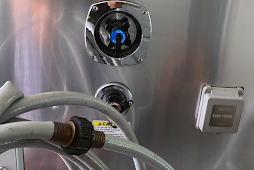RV Cost of Ownership
Ready to hit the open road and enjoy the freedom of traveling and seeing the sights? During the year 2020 more people than ever have either purchased an RV or on the verge of taking the plunge. It really is a lifestyle change especially if you plan to give up your home and belongings and RV full time. Many want to escape the financial burden of maintaining a home or apartment and save "all" of that money. Realistic or maybe not?
(( Article from my book, My RV Mentor ))
How much does all of this actually cost? To tell you the truth I can’t even estimate what your expenses will be because there are so many factors that go into determining actual cost. And if I did profile my expenses and later on you realized something different, you may be very disappointed or may even have accumulated debt you had not planned for because of my examples.
In the first few pages of the book, I identified some RV owner’s constraints where I generalized that, “for the average family, it can and probably will be expensive.” I have identified many of the expenses over and beyond the initial expense of buying your RV without quantifying how much. I talked about shopping online to save money and not to buy anything recreational vehicle related unless you know why you are buying it, and how to use it one you get it. One example is a new owner purchasing a surge protector for several hundred dollars and letting it sit in the storage compartment because they knew it was important but didn’t know how to use it or when to use it.
Just to make sure we cover as much as we can without having to dust off our crystal ball (estimates are impossible without established data), here are some typical expenses.
Annual Vehicle Registration: My tow vehicle registration is $95 in Florida. I know people in the West paying $1200 per year and up for a similar vehicle. Each state is entirely different and what one state charges cannot be used to estimate cost in a different state.
Insurance: Motorhomes are insured much like an automobile but possibly higher liability coverage. Trailers are usually insured in conjunction with the tow vehicle (not always). Some factors considered in determining cost of insurance include value of the RV, year, age of drivers and past driving history, credit score, state and city where the unit will be stored, and how frequently uses. Rarely will two RV owners fall under the exact same insurance profile.
RV Maintenance: After warranty maintenance labor charges can vary from $95 to $195 per hour. Those of you that can do some of your own maintenance will reduce costs significantly. Just doing your own oil change could save fifty dollars or more. Refer to the owner’s manual to better understand type and frequency of routine maintenance.
Camping Fees: The average camping fee can be anything from $20 to $140 per night depending on location and amenities. As a general rule I try to avoid anything over $40 unless it is a destination campground. You will have to find your groove and set thresholds on nightly camping expenses. Each trip will require some planning to include anticipated expenses.
Fuel Expense: Fuel prices can jump up overnight due to severe weather or political climate at home or abroad. And the prices always come down much slower considering they come down at all. State taxes have a huge impact on the final price of fuel making some states more expensive to visit than others. An RV salesman once told me, “if gasoline goes to $5/gallon I can’t give away motorhomes.” Again, fuel expenses should be part of your trip planning process.
Unexpected Expenses: We talked about tire and battery failure and I provided some tips on how to prevent premature failures. But the odds are, sooner or later you may have a blowout and your battery will only last so long then it will require a replacement. Trip interruption expenses include hotels, meals and transportation costs should your RV require major repairs while on a trip. Should you have insurance to cover some of these unexpected expenses? Maybe, it depends on your specific situation.
Of course, I have not even mentioned, food, entertainment, entrance fees and all that stuff that tourist do. Knick knacks, a few refrigerator magnets and I think you get the picture. It all starts to add up quickly if not managed. But I’m pretty confident all you are onboard with these types of expenses but just needed a summary of what expenses are involved with maintaining and operating your RV.

























